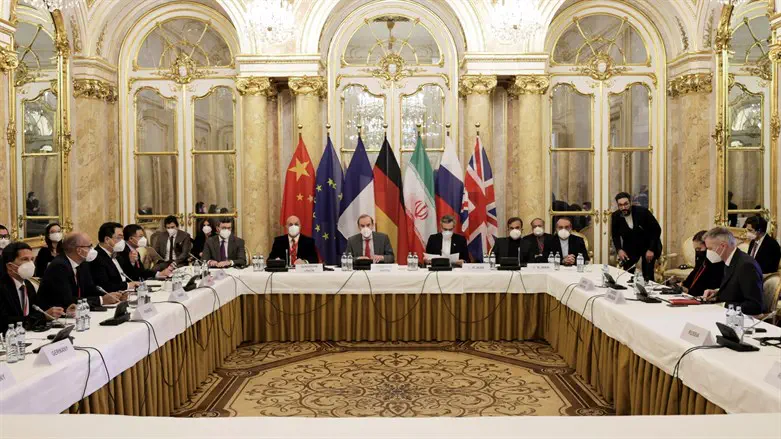
The US Special Envoy for Iran, Rob Malley, on Monday said the United States is focused on matters on Iran “where we can be useful,” and is not currently going to “waste our time” on the nuclear deal “if nothing’s going to happen.”
Speaking at an event hosted by the Carnegie Endowment for International Peace and quoted by CNN, Malley said the US is still committed to diplomacy to constrain Iran’s nuclear program, but has turned its attention away from efforts on the nuclear deal amid sweeping protests in Iran and transfers of weapons from Tehran to Moscow for the war in Ukraine.
Malley acknowledged that “several times we came very close” to an agreement to rejoin the 2015 nuclear deal, but added, “Each time we came close, Iran came up with one new extraneous demand that derailed the talks.”
“That’s where we were late August, early September and there has been no movement since then,” he said, adding, “Nothing’s happening on the nuclear deal so we’re not going to spend our time, waste our time on it, if nothing’s going to happen.”
“We’re going to spend our time where we can be useful,” he continued, including supporting the protesters in Iran, and trying to stop the transfer of weapons from Tehran to Moscow for use in the war in Ukraine.
Despite the standstill on efforts over the nuclear deal, Malley defended the administration’s continued efforts to restore the agreement, arguing that the Trump administration tried the alternative and “it didn’t work.”
“We make no apology for having tried and still trying to do everything we can to prevent Iran from acquiring a nuclear weapon. Again, a preference for diplomacy if that can work, with tools of pressure, sanctions in particular. But also keeping very much all options on the table in case diplomacy were to fail,” Malley said, according to CNN.
“We will use other tools, and in last resort, a military option if necessary, to stop Iran from acquiring a nuclear weapon,” he stressed.
The 2015 agreement with major powers, known formally as the Joint Comprehensive Plan of Action (JCPOA), has been on life support since then-President Donald Trump withdrew the United States from it in 2018, but the US and Iran have been holding indirect talks since April 2021 in an effort to revive it.
Iran in September announced it had submitted its comments to the US response to the European Union’s draft for reviving the 2015 Iran nuclear deal.
While Iran’s Foreign Ministry spokesperson said at the time that Iran’s response was prepared based on a constructive approach, a senior Biden administration official said the Iranian response "is not at all encouraging.”
A US official later said that the efforts to revive the 2015 Iran nuclear deal have “hit a wall” because of Iran's insistence on the closure of the UN nuclear watchdog's investigations.
State Department spokesperson Ned Price reiterated last week that “it’s no secret that a deal does not appear imminent. A deal does not appear in the offing, at least not at the moment, because Iran’s demands have consistently gone beyond the four corners of the JCPOA.”
Days later, Iranian President Ebrahim Raisi accused the United States of "dragging their feet" instead of making a decision to revive the 2015 nuclear deal.

